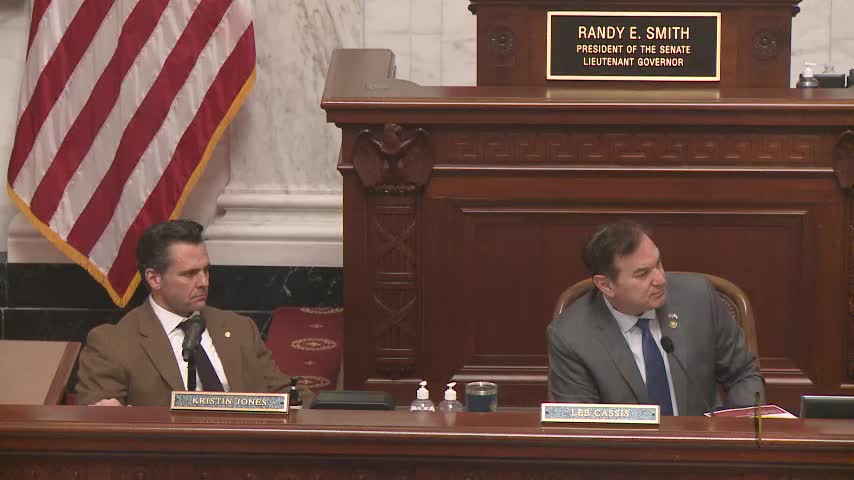Presenter outlines West Virginia's "recreational responsibility" laws, limits on landowner liability
Get AI-powered insights, summaries, and transcripts
Subscribe
Summary
A WVU law student told the Joint Judiciary Committee that West Virginia has nine "recreational responsibility" statutes that narrow operator and landowner liability for inherent risks in outdoor activities while preserving liability for negligent, reckless or intentional conduct.
Senator Mike Stewart convened the Joint Judiciary Committee for its first session and introduced Crofton Higgins, a second-year West Virginia University law student, who delivered an overview of West Virginia's recreational responsibility statutes.
Higgins told lawmakers the state has nine targeted "responsibility acts" that aim to reduce insurance and litigation costs for businesses and landowners who host outdoor recreational activities, while keeping operators liable for negligence, recklessness or intentional misconduct. "The responsibility acts are not designed to blanket, immunize, businesses from liability. It only protects against loss and damage or injury sustained by participants from inherent risk of participation in the sport," Higgins said.
The presenter listed statutes for skiing, whitewater rafting, equestrian activities, ATVs and UTVs (including carve-outs for the Hatfield-McCoy trail association), agritourism, youth motorsports, nonprofit adventure activities (for scout groups and similar organizations), and zipline/canopy tours. Higgins said each statute follows a similar structure: a legislative purpose, definitions, operator duties (including refusing visibly intoxicated participants), participant duties (acknowledging inherent risks and recognizing personal skill limits) and liability provisions allocating responsibility for negligent or intentional acts.
Higgins used examples to illustrate how courts apply the statutes. He described a skiing incident where a self-directed skier injured himself after taking an unmaintained run and the court treated the injury as an inherent risk; by contrast, he summarized Thomas v. U.S. Hotel & Resort Management, in which the operator's employee failed to stop dangerous conduct and the operator was held liable after a participant suffered a brain hemorrhage.
Committee members pressed Higgins on common questions. One lawmaker asked whether equipment rented by an operator (for example, a rented mountain bike) could create operator liability if the equipment was not maintained. Higgins said that courts generally treat unmaintained rental equipment as falling outside "inherent risk" and more likely to be negligent: "When you are not maintaining your equipment, that's ... at minimum, a negligent act," he said.
Lawmakers also asked about residential landowners and "limiting liability for landowners" provisions. Higgins explained those provisions narrow landowner responsibility for clear-and-obvious or hidden natural dangers on private property but do not excuse intentional harms or booby traps. He cautioned that a landowner who has acute awareness that a hazard is likely to injure entrants may still face liability, and said posting "no trespassing" signs can affect the entrant's legal classification and thus the landowner's duties.
Higgins repeatedly emphasized the line between inherent risks of a sport (which these statutes address) and operator or landowner negligence (which remains actionable). He closed by noting West Virginia has a larger number of these targeted statutes than many states, and that the statutes aim to encourage outdoor tourism and business participation by clarifying duties and limiting frivolous litigation.
Higgins stayed afterward to take additional questions from lawmakers in the chamber.
